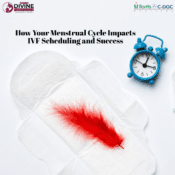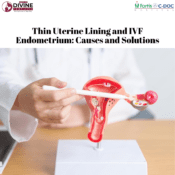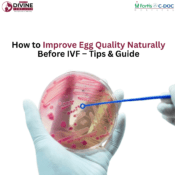

Common IVF Terms and What They Mean: A Glossary for Patients
1. Introduction
Welcome to your fertility journey! If you’re beginning or even considering in vitro fertilization (IVF), you've probably encountered a whirlwind of medical terms, acronyms, and technical jargon that can feel overwhelming. Whether you're Googling treatment options, consulting with a specialist, or sitting in a waiting room with a packet of documents filled with abbreviations, it's natural to feel confused or even intimidated.
That’s where this IVF glossary comes in.
Understanding IVF medical terminology can help reduce anxiety and empower you to actively participate in your treatment decisions. This glossary of common IVF terms is designed to make complex fertility terminology more accessible, giving you the confidence to ask the right questions and understand the processes involved in your care.
This guide is created specifically for:
- First-time IVF patients.
- Couples struggling to conceive.
- Partners and loved ones supporting someone undergoing treatment.
- Anyone researching IVF terms for beginners.
If you’re looking for clarity, you’re in the right place.
2. How to Use This Glossary
This IVF glossary is designed to help you navigate fertility terms with ease. You can:
- Use it alphabetically or by category for quick referencing.
- Bookmark the page or print it out to keep handy during consultations.
- Understand variations – terms may slightly differ by country, clinic, or medical practice, especially between the U.S., UK, and India.
Whether you're discussing medications, testing results, or embryo grading, having a guide that explains IVF acronyms and terminology in plain language makes a world of difference.
3. IVF Glossary
A. General Fertility & Diagnostic Terms
InfertilityThe inability to conceive after 12 months of regular, unprotected intercourse (or 6 months for women over 35). It’s a common condition that affects around 10-15% of couples globally.
OvulationThe release of a mature egg from the ovary, typically around day 14 of a 28-day cycle. It's essential for natural conception.
Antral Follicle Count (AFC)An ultrasound measurement of small follicles in the ovaries, used to estimate ovarian reserve and how well you might respond to stimulation.
AMH (Anti-Müllerian Hormone)A blood test that gives an idea of your egg count. Higher AMH indicates a better ovarian reserve.
HSG (Hysterosalpingogram)An X-ray test to examine the uterus and fallopian tubes. It checks for blockages that could affect fertility.
FSH/LH/E2 (Follicle-Stimulating Hormone / Luteinizing Hormone / Estradiol)Hormones that regulate the menstrual cycle and are measured to assess ovarian function and readiness for stimulation.
Semen AnalysisA basic fertility test for men that evaluates sperm count, motility (movement), and morphology (shape).
PCOS (Polycystic Ovary Syndrome)A hormonal disorder that affects ovulation and may lead to infertility. Women with PCOS often undergo IVF if ovulation medications are unsuccessful.
B. IVF Cycle & Medication Terms
Baseline ScanThe first ultrasound scan, done at the beginning of the IVF cycle to check ovarian health and ensure you’re ready for stimulation.
Ovarian StimulationThe process of using medications to produce multiple eggs in one cycle, increasing chances of success.
FSH / HMG / Clomid / Letrozole
- FSH (Follicle-Stimulating Hormone): Stimulates follicle growth.
- HMG (Human Menopausal Gonadotropin): A mix of FSH and LH.
- Clomid & Letrozole: Oral medications used for mild stimulation.
Trigger Shot (hCG or Lupron)A final injection given before egg retrieval to mature the eggs. Timing is crucial.
Suppression ProtocolsProtocols using medications to prevent ovulation before the eggs are ready for retrieval.
StimmingA slang term for the ovarian stimulation phase of IVF.
GnRH Agonists / AntagonistsMedications that control the timing of ovulation and prevent early release of eggs.
C. Egg Retrieval & Embryology Terms
Egg Retrieval (OPU - Ovum Pick Up)A procedure done under light sedation where eggs are collected from the ovaries via a thin needle guided by ultrasound.
FollicleFluid-filled sacs in the ovaries that contain the eggs. Follicles are monitored for size and development during stimulation.
ICSI (Intracytoplasmic Sperm Injection)A fertilization method where a single sperm is directly injected into an egg. Commonly used for male factor infertility.
FertilizationThe process of the sperm joining with the egg to create an embryo.
Embryo GradingThe evaluation of embryos based on appearance and development. High-quality embryos have a higher chance of successful implantation.
BlastocystAn embryo at day 5 or 6 of development. Transferring at this stage is common due to better implantation success.
Embryo Transfer (ET)The process of placing one or more embryos into the uterus. It can be fresh (same cycle) or frozen (FET).
D. Genetics & Testing Terms
PGT-A (Preimplantation Genetic Testing for Aneuploidy)A test that checks embryos for chromosomal abnormalities to select the healthiest one for transfer.
PGT-M (Preimplantation Genetic Testing for Monogenic disorders)Screening embryos for specific inherited diseases like cystic fibrosis or Tay-Sachs.
KaryotypingA test that looks at the number and structure of chromosomes in a person’s cells to detect genetic issues.
Mosaic EmbryoAn embryo with both normal and abnormal cells. These may still be transferred in some clinics with counseling.
E. Cryopreservation & Transfer Terms
Frozen Embryo Transfer (FET)A procedure where previously frozen embryos are thawed and transferred into the uterus in a future cycle.
VitrificationA rapid freezing method that prevents ice crystal formation and improves survival of eggs/embryos.
Thaw CycleA cycle in which frozen embryos are used, as opposed to fresh embryo transfer.
Luteal Phase SupportHormones like progesterone and estrogen are given to support the uterine lining after embryo transfer.
Endometrial ReceptivityA state where the uterine lining is most likely to accept an embryo, often optimized through monitoring and hormone support.
F. Post-Transfer & Pregnancy Terms
2-Week Wait (2WW)The period after embryo transfer where you wait to see if implantation occurs and a pregnancy is confirmed.
Beta hCG TestA blood test done about 9-14 days after transfer to detect the pregnancy hormone.
Chemical PregnancyA very early pregnancy loss, where hCG is initially positive but the embryo doesn’t develop further.
Viable PregnancyA pregnancy that has been confirmed by ultrasound, typically by seeing a fetal heartbeat.
G. IVF Support & Legal Terms
Donor Egg/SpermGametes donated by another person, often used in cases of poor egg/sperm quality or genetic conditions.
Embryo DonationUse of embryos donated by another couple, often those who completed their family through IVF.
Informed ConsentA process where patients understand and agree to procedures and their risks before starting treatment.
IVF CounselorA trained professional who provides emotional support and helps patients cope with the physical and psychological challenges of IVF.
4. Conclusion
Fertility treatments like IVF can feel like a foreign language when you're just starting out. But now, with this IVF glossary by your side, you're equipped to better understand what’s happening, ask meaningful questions, and advocate for your care.
Every acronym, term, or medical explanation is a step toward clarity and empowerment. No question is too small, and no term is too complex when you have the right tools to decode them.
If you're looking for support, speak to your clinic’s IVF counselor or fertility expert. The best IVF centres in Delhi, like Mother Divine Fertility, offer detailed guidance every step of the way—from diagnosis to embryo transfer to pregnancy.
5. FAQs
Q1: Why are there so many IVF terms?IVF is a multi-step medical process involving diagnostics, medications, lab procedures, and testing. The terminology helps medical professionals communicate precisely—but it can be overwhelming for patients without a guide.
Q2: What IVF terms should I know before starting treatment?Start with key terms like ovulation, AMH, stimulation, embryo transfer, and beta hCG. Knowing the basics makes consultations smoother and less stressful.
Q3: Is it okay if I don’t understand every term right away? Absolutely. This IVF glossary is here to help you learn over time. Feel free to revisit it or ask your fertility team to explain anything you’re unsure about.





